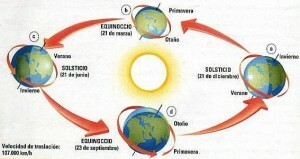Poetry Example: Sonnet
Drafting / / July 04, 2021
Within poetry it is called sonnet to compositions that have been classified as major art, and to be considered as sonnet, also It must be made up of four verses that are generally hendecasyllable and its rhyme must be consonant.
Another characteristic that the sonnet must have is that it is divided into two, which are: two quartets and two triplets.
His story: The sonnet was integrated into the Spanish language apparently in the hands of Iñigo López de Mendoza in the middle of the 15th century, between 1442 and 1450. López de Mendoza brought the sonnet from Italy, where it was created in the 13th century, giving it the characteristic of being suitable and dedicated to exposing love.
Sonnet example: King Our Lord
It is coming, Lord, or it is already arrival
the glorious age when heaven promises
a flock and a shepherd alone on the ground
luckily to your reserved times.
Already so high a beginning on such a journey
shows you the end of your holy zeal
and announce to the world, for more consolation,
a monarch, an empire and a sword.
Already the orb of the earth feels in part
and he waits in all your monarchy,
conquered by you in just war.
That to whom Christ has given his banner
will give the second happiest day
in which, conquered the sea, conquers the land.
Author: Hernando de Acuña (n, Madrid 1519- m, Granada1581)
Sonnet example: Dialogue between babieca and rocinante
-How are you, Rocinante, so thin?
-Because you never eat and work.
"Well, what about barley and straw?"
"My master won't leave me a bite."
-Go on, sir, you are very badly bred,
for your ass tongue outrages the master.
-Assus goes from the cradle to the shroud;
Do you want to see it? Look at him in love.
-Is it stupid to love? -It's not great prudence.
-You are metaphysical. -I don't eat.
-Complain about the squire. - It is not enough:
How am I to complain about my ailment
if the master and squire or butler
are they as naughty as Rocinante?
Miguel de Cervantes Saavedra. (Nicknamed the one-armed of Lepanto No. Alcalá de Henares 1547 - m. Madrid 1616).

